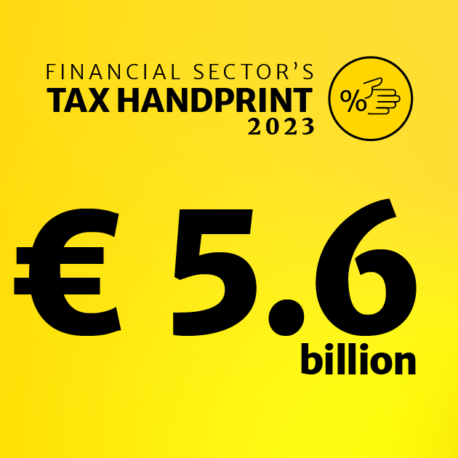
- The OECD Pillar 2 global minimum tax rules were implemented into national legislation in 2024 as the Finnish act on the minimum tax rate for large-scale corporate groups entered into force on 1 January. The purpose of the Pillar 2 Global Anti-Base Erosion (GloBE) rules is to ensure that large multinational enterprises pay a minimum level of tax (15%) on the income arising in each of the jurisdictions where they operate.
- The national act is supposed to be amended by retroactively implementing the OECD’s guidance published in late 2023. Because the OECD’s guidance is not yet ready, the act will have to be amended more than once.
- In the Nordic countries, financial sector companies’ profits are already subject to a tax burden much higher than the 15% minimum tax rate.
- The need for permanent safe harbour rules is great. Corporate groups must be able to be sure that they will not need to make laborious and costly calculations simply so that they can prove that their tax burden is high enough as it is.
The OECD Pillar 2 global minimum tax rules were implemented into national legislation in 2024 as the Finnish act on the minimum tax rate for large-scale corporate groups entered into force on 1 January. The purpose of the Pillar 2 Global Anti-Base Erosion (GloBE) rules is to ensure that large multinational enterprises pay a minimum level of tax (15%) on the income arising in each of the jurisdictions where they operate.
“What is particular about this pending amendment is that the amended act is proposed to enter into force with retroactive effect. This is unusual in the context of the Finnish Constitution”, says Finance Finland’s Head of Tax Regulation Marja Blomqvist.
“The retroactive application of the amendments just goes to show how exceptionally difficult and regrettably incomplete the GloBE rules are. Large corporate groups are in a place where they have to prepare for the adoption of a complicated framework partly blindfolded”, says Blomqvist.
The OECD is still working on more detailed guidance on the GloBE rules. For this reason, national tax authorities, including the Finnish Tax Administration, are still very much in the process of drafting their own guidelines.
“At Finance Finland, we consider it important that the Finnish Tax Administration is granted enough resources to work on its instructions. This is an extremely complex regulatory framework that is difficult to understand without extensive knowledge and experience of accounting, tax reporting and tax technology”, emphasises Blomqvist.
Permanent safe harbour rules called for
The GloBE rules require large multinational enterprises to calculate and report their taxes in a completely new and complicated manner. These calculations are both laborious and costly to make.
Until the end of the transition period (fiscal years starting in 2024–2026), large corporate groups can avoid these calculations altogether for example if the effective tax rate calculated based on their country-by-country reports is high enough (15–17%).
“As soon as possible, we need to know for certain that these transitional safe harbour rules will really be extended. It is unreasonable to obligate groups to make laborious and costly calculations simply so that they can prove their tax burden is high enough. Groups must continue to have simpler ways to do so”, says Blomqvist.
The Nordic countries all have an extensive tax base, and financial sector companies’ profits are subject to a tax burden much higher than the 15% minimum tax rate. As Nordic financial sector companies mostly operate in the Nordic countries, they therefore have a high effective tax burden.
“The financial sector is subject to extensive regulation and closely supervised by various authorities. For the Nordic financial sector, the global minimum tax rules are nothing but a costly and convoluted administrative burden”, underlines Blomqvist.
Looking for more?
Other articles on the topic

Financial sector’s VAT treatment needs an overhaul, but the Finnish pension system must not be hampered with added tax burden

The Nordic financial sector calls for harmonised implementation of the FASTER Directive

Income taxes paid by financial sector companies grew to €1.3 billion in 2023, and the sector’s total tax handprint of €5.6 billion would cover Finland’s military expenditure – OP Financial Group and Nordea the two largest taxpayers in Finland

Finance Finland proposes ways to increase economic growth and tax revenue: Finnish law must provide for retail ELTIFs


